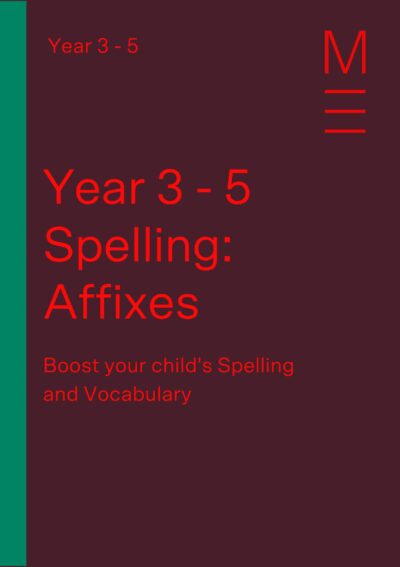Welcome to Matrix Education
To ensure we are showing you the most relevant content, please select your location below.
Select a year to see courses
Learn online or on-campus during the term or school holidays
Learn online or on-campus during the term or school holidays
Learn online or on-campus during the term or school holidays
Learn online or on-campus during the term or school holidays
Learn online or on-campus during the term or school holidays
Learn online or on-campus during the term or school holidays
Learn online or on-campus during the term or school holidays
Get HSC exam ready in just a week
Select a year to see available courses
Science guides to help you get ahead
Science guides to help you get ahead
Every parent wants to help their child succeed, but finding the right approach can be challenging. Here are some tips on nurturing your child’s strengths and providing the support they need to reach their full potential.

Join 75,893 students who already have a head start.
"*" indicates required fields
You might also like
It’s a question that every parent asks themselves at some point: How can I best support my child to reach their full potential? We all want to give our children the best start in life, but finding the right approach can be challenging. Let’s explore practical strategies you can adopt to nurture and help your child succeed academically, emotionally, and socially.
Here’s what we’ll cover:
Every child is unique, with individual strengths and talents. Whether it’s being good at maths, having a gift for writing, or an interest in athletics, recognising and nurturing these strengths early on is key to helping your child succeed and develop a sense of identity.
Expand your child's vocabulary with this spelling list Fill out your details below to get this resource emailed to you. "*" indicates required fields
Download your Year 3-5 Spelling List - Affixes!

Download your Year 3-5 Spelling List - Affixes!
How to identify strengths early:
For example, if your child shows a knack for maths, you could enrol them in advanced maths programs or provide extra challenges at home. Giving your child opportunities to explore their talents without overwhelming them creates a healthy balance that promotes enthusiasm for learning.
Pro tip: You need balance—while fostering your child’s strengths, make sure they still have a well-rounded education to prevent them from becoming too focused in one area.
Once you’ve identified your child’s strengths, the next step is to set goals that challenge and inspire them, yet are still achievable. This doesn’t always mean aiming for the highest grades. Instead, focus on goals that encourage your child to explore new ideas and push their boundaries.
For example, if your child is passionate about English, setting a goal to participate in a local writing contest could provide both a tangible objective and an exciting experience. Goals should be both inspiring and realistic, fostering a sense of achievement and motivation. Research shows that when children set goals they’re excited about, they become more engaged and take ownership of their learning.
Creating effective goals:
Example: A goal like “Improve in creative writing” is vague and unmeasurable. A SMART goal might be “Write a 1000-word story by the end of term, focusing on character development.” This goal is concrete and achievable within a timeframe.

The environment in which your child learns is just as important as what they learn. Your child needs more than just a quiet space – they need a supportive environment where curiosity is encouraged and excellence is the goal.
At home, try to create a space dedicated to learning. Remove distractions, and ensure there is a balance between work and play. But beyond the home, structured support systems like tutoring programs can provide an additional layer of encouragement and help your child succeed.
Programs like those offered at Matrix Education can provide immense benefits. In small group settings, your child is surrounded by peers who are equally motivated, fostering a collaborative and positive environment. Matrix offers tailored guidance, so your child gets the right level of support and challenge.
In a large classroom, teachers may not have the time or resources to give individual feedback or address specific challenges. Tutoring bridges this gap by giving students one-on-one attention, allowing for personalised progress tracking.
Learn with Matrix+ Online
Expert teachers, comprehensive resources and one-to-one help. Help your child develop strong skills for English, Maths and the OC test, wherever you are.
One of the most powerful ways to help your child succeed is to foster a growth mindset. Coined by psychologist Carol Dweck, a growth mindset refers to the belief that intelligence and abilities can be developed through dedication and hard work. This contrasts with a fixed mindset, where individuals believe their talents are innate and unchangeable.
Encouraging your child to embrace challenges, learn from mistakes, and see effort as the path to mastery will build their resilience and love for learning. Praise should focus on their effort, rather than their results.
How to foster a growth mindset:
Did you know? Students with a growth mindset are more resilient and persistent in trying to achieve their goals, which is key to success beyond school years.
Regular feedback from teachers and tutors helps you understand where your child excels and where they may need additional support. This can be especially important in a tutoring environment where more personalised, detailed feedback is available.
Benefits of regular feedback:
How to stay involved:
Matrix Education’s tutoring programs offer parents regular feedback, ensuring that students are progressing at the right pace while receiving the support they need to overcome obstacles.
Did you know? Research shows that when parents actively support their child’s learning, both at home and in school, student achievement and well-being increase.
One of the greatest things you can do to help your child succeed is a love for lifelong learning. Encouraging curiosity and exploration beyond the classroom will help your child develop into an independent thinker. Whether through books, documentaries, hobbies, or discussions, showing that learning is a continual process helps children see knowledge as something exciting rather than just a school requirement.
Ways to encourage everyday learning:
Children who view learning as a fun, ongoing process are often more likely to stay motivated in their studies and pursue knowledge even after formal schooling ends.
Learning isn’t confined to the classroom. Extracurricular activities offer children the opportunity to explore interests, develop social skills, and build resilience. Whether it’s sports, drama, or coding, extracurricular activities complement academic pursuits and can enhance a child’s confidence and creativity.
Encouraging your child to participate in activities outside of school has been shown to improve academic performance, increase self-esteem, and teach essential life skills such as teamwork and time management.
How extracurriculars help:
While it’s essential to challenge your child, it’s equally important to celebrate their achievements, no matter how small they may seem. Recognising and rewarding their efforts, progress, and accomplishments reinforces positive behaviour and motivates them to keep striving towards their goals.
How to celebrate effectively:
Example: A reward system that focuses on effort over perfection can significantly boost self-confidence, fostering a sense of pride in their hard-earned accomplishments.
Beyond academics, your child’s social and emotional development is crucial for their overall success. Emotional intelligence (EQ) helps children navigate relationships, handle stress, and develop empathy—all skills that are important both in and out of the classroom.
How to support emotional development:
Did you know? Studies have shown that children with strong emotional and social skills tend to perform better academically because they can manage stress more effectively and build strong support networks.
Supporting your child’s emotional and mental well-being is just as important as their academic development. A healthy mind fosters a love for learning and builds resilience in the face of challenges. It’s essential to create an environment where your child feels comfortable discussing any worries or stress they may be facing.
Ways to support wellbeing:
Helping your child reach their full potential is one of the most rewarding responsibilities as a parent. By recognising their strengths, setting inspiring goals, creating a supportive learning environment, and maintaining open communication, you are laying the groundwork for their future success.
It’s a challenging responsibility for a parent, which is why tailored tutoring programs like those at Matrix are so valuable. At Matrix Education, we design our courses to meet each student’s unique needs, whether they want to excel in a particular subject or need extra guidance to build their confidence. Our tailored programs provide the structure and support students need to unlock their full potential and succeed academically.
Take the next step in your child’s educational journey—enrol in a Matrix program today and watch them thrive.
Is your child ready for the
2025 OC Test?
Assess your child's OC exam readiness with
our FREE Mock Test! Receive a diagnostic report.
Written by Matrix Education
Matrix is Sydney's No.1 High School Tuition provider. Come read our blog regularly for study hacks, subject breakdowns, and all the other academic insights you need.© Matrix Education and www.matrix.edu.au, 2023. Unauthorised use and/or duplication of this material without express and written permission from this site’s author and/or owner is strictly prohibited. Excerpts and links may be used, provided that full and clear credit is given to Matrix Education and www.matrix.edu.au with appropriate and specific direction to the original content.